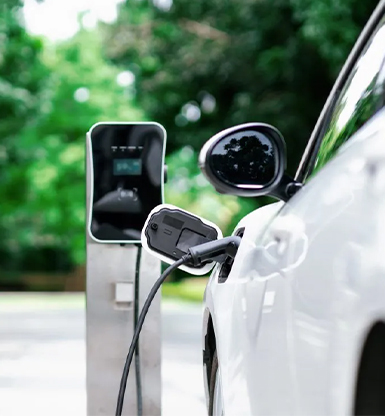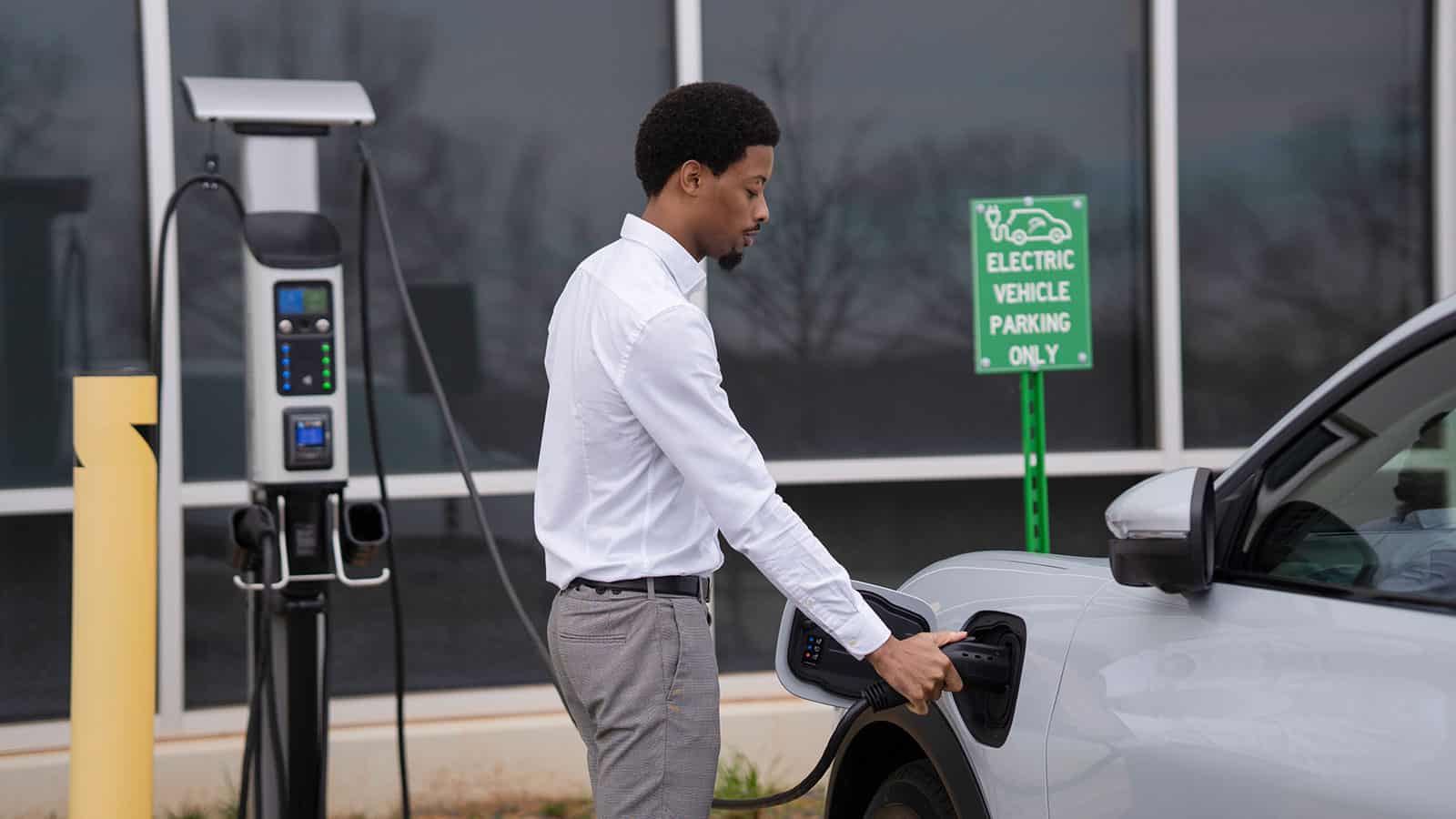How to Stay Updated on Industry Developments When You Buy EV Charging news
How to Stay Updated on Industry Developments When You Buy EV Charging news
Blog Article
Why 2024 Is a Game-Changer for EV Charging: Patterns and Insights
As we come close to 2024, the electric car (EV) charging landscape is established for substantial makeover, driven by the spreading of ultra-fast billing terminals and advancements in wise billing modern technologies. This advancement is underpinned by enhancing investments from both personal and public markets, which promise to relieve historical concerns such as array anxiousness. Additionally, the consolidation of renewable resource resources together with positive government plans is most likely to redefine the sustainability and availability of EV facilities. These growths elevate crucial inquiries about the future of EV fostering and the ramifications for industries and consumers alike.

Development of Ultra-Fast Charging Stations
How rapidly are ultra-fast charging terminals transforming the electric lorry landscape? The spreading of ultra-fast billing terminals is a pivotal development in the EV sector, considerably improving the convenience and feasibility of electrical automobile ownership. These terminals, qualified of delivering billing rates up to 350 kW, can recharge an EV's battery to approximately 80% in as low as 15-30 minutes, effectively decreasing array stress and anxiety among customers.
The growth of ultra-fast billing facilities is being driven by both exclusive and public financial investments, reflecting a strategic change towards lasting transport services. Major auto makers and energy companies are teaming up to set up these stations along significant freeways and urban facilities, producing a substantial network that sustains long-distance travel and daily use.
Furthermore, advancements in battery technology are matching this development, enabling lorries to make the most of the increased charging rates. As the variety of ultra-fast charging stations proceeds to rise, they are expected to play a crucial function in increasing EV adoption, promoting a shift towards a cleaner and even more sustainable future. This growth not just boosts customer experience yet additionally solidifies the stability of electric cars as a mainstream transport alternative.
Developments in Smart Charging Modern Technology
With the increasing combination of electronic modern technology in the electrical vehicle industry, advancements in wise billing modern technology are considerably improving the performance and convenience of EV charging. Smart charging systems leverage connectivity and data analytics to enhance the billing procedure, permitting customers to bill their vehicles when electrical power rates are most affordable and require on the grid is very little.

Interoperability is one more essential development, as new requirements and protocols enable different EV designs and billing terminals to connect flawlessly. This boosts customer experience by providing more available charging options across various networks. Ultimately, the evolution of smart charging technology represents a significant action in the direction of an extra straightforward and lasting EV ecological community, leading the way for wider adoption and combination into daily life.
Integration of Renewable Resource Resources
The assimilation of eco-friendly power resources right into EV billing facilities is coming to be significantly vital as the demand for sustainable solutions grows. This fad not just assists decrease the carbon impact connected with electrical car billing yet likewise enhances grid strength by promoting decentralized energy manufacturing.
Solar and wind power are at the forefront of this assimilation, with lots of charging click reference terminals now being or including photovoltaic or pv panels developed in distance to wind farms. These sustainable sources can create clean electrical power, providing a lasting energy supply for EVs. Moreover, innovations in energy storage space innovations, such as batteries, facilitate the efficient storage of excess energy created during optimal production hours, ensuring that billing terminals can operate successfully even when eco-friendly generation is low.

Growth of Charging Infrastructure
As electrical vehicle (EV) adoption increases, the growth of charging framework has actually ended up being a vital focus for stakeholders across the automotive and power industries - EV Charging news. The requirement for a accessible and durable charging network is vital to support the growing variety of EVs sites when traveling and to relieve array anxiety among customers
In 2024, we are observing substantial investments from both public entities and exclusive business focused on improving the charging landscape. This consists of the setup of fast-charging terminals along freeways and in metropolitan centers, which can reenergize EVs in a portion of the time contrasted to conventional battery chargers. Additionally, collaborations in between automakers and energy providers are helping with the deployment of innovative charging options to satisfy diverse consumer demands.
Moreover, developments in innovation are leading to smarter billing systems that maximize energy distribution and decrease costs. The combination of these systems is crucial for fitting the expected boost popular as more customers transition to electric mobility. The growth of billing facilities not just supports the EV market but also plays an essential duty in achieving wider sustainability objectives, making it a pivotal part in the evolution of transportation.
Federal Government Plans and Rewards
Federal government policies and incentives are significantly forming the landscape of electrical automobile (EV) adoption and billing facilities development. Governments globally are acknowledging the urgent requirement to shift to cleaner transportation alternatives, causing the implementation of various initiatives focused on accelerating EV adoption. These plans frequently include tax obligation credit ratings, discounts, and gives for customers and organizations that invest in electric lorries and charging terminals.
Along with guide monetary incentives, lots of governments are developing enthusiastic targets for EV sales and mandating the installation of charging facilities in brand-new growths. As an example, a number of countries have actually committed to terminating internal combustion engine cars within the following years, creating a feeling of seriousness that drives both customers and suppliers towards electrical choices.
Moreover, public-private collaborations are becoming an important element of these initiatives, helping with investment in charging networks and making sure prevalent accessibility. By straightening regulatory structures with economic incentives, federal governments are not just fostering a helpful setting for EV fostering yet additionally resolving issues associated to range stress and anxiety and billing schedule. This durable policy landscape is readied to make 2024 a critical year in the change to electric movement.
Final Thought
The year 2024 is set to transform the electric car billing landscape through the proliferation of ultra-fast billing stations, advancements in clever billing technologies, and the integration of renewable resource sources. The growth of billing facilities, strengthened by supportive federal government policies and motivations, will certainly resolve array anxiousness and enhance the allure of electric car possession. Jointly, these developments will certainly promote a available and sustainable environment for my latest blog post electrical lorry adoption, ensuring a durable future for the market.
As we approach 2024, the electrical vehicle (EV) billing landscape is established for significant transformation, driven by the spreading of ultra-fast charging stations and innovations in clever charging modern technologies. The expansion of ultra-fast charging terminals is a critical growth in the EV industry, substantially improving the benefit and expediency of electric automobile ownership. Smart billing technologies facilitate remote tracking and management, allowing customers to arrange billing sessions via mobile applications.
Federal government policies and rewards are significantly shaping the landscape of electrical lorry (EV) adoption and billing infrastructure advancement.The year 2024 is established to revolutionize the electric lorry charging landscape with the spreading of ultra-fast charging stations, innovations in smart billing technologies, and the assimilation of eco-friendly energy sources.
Report this page